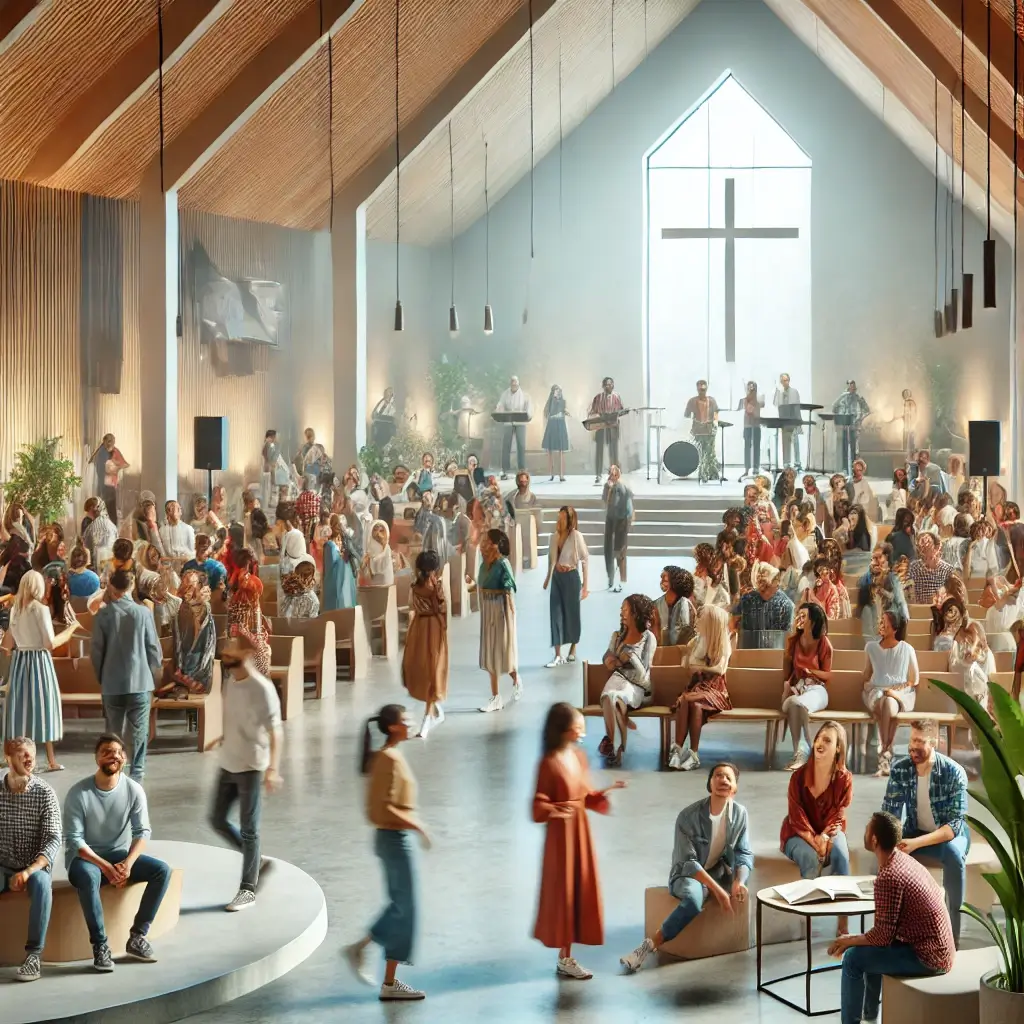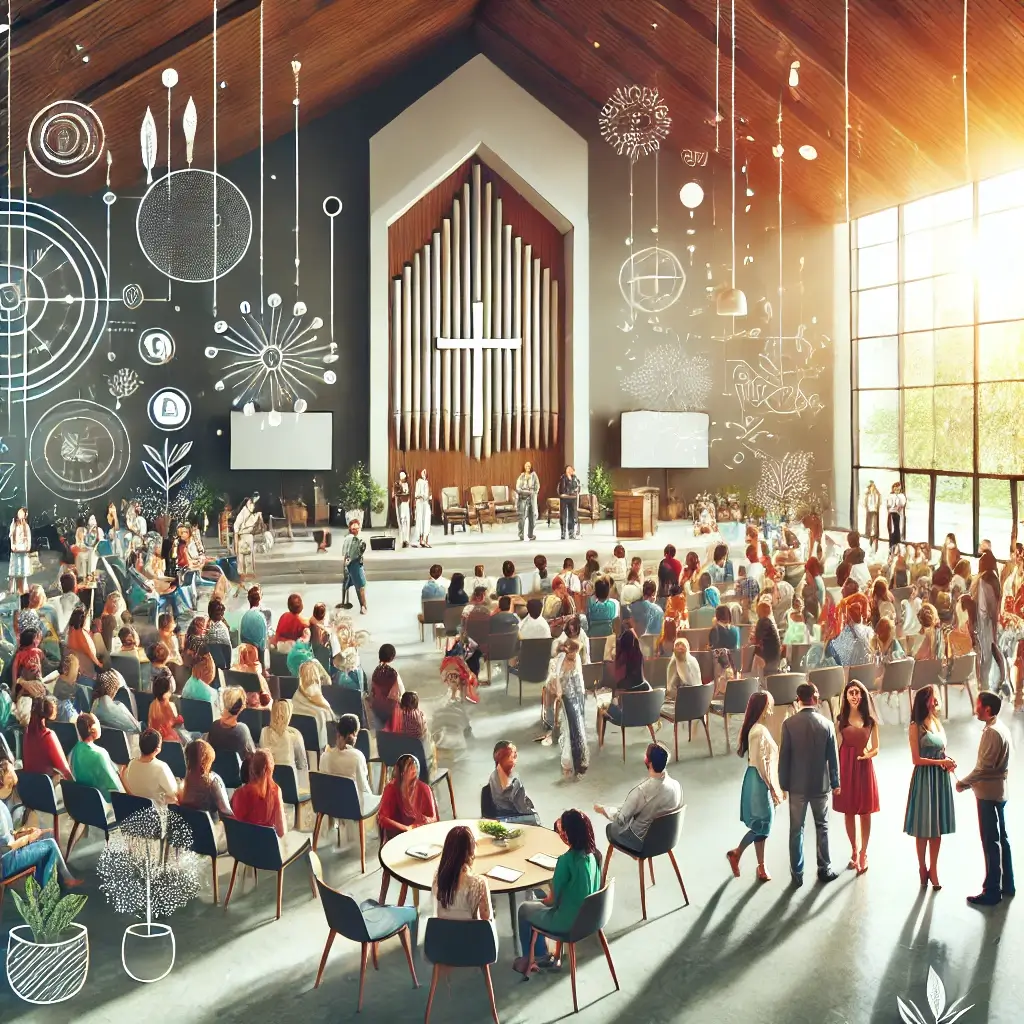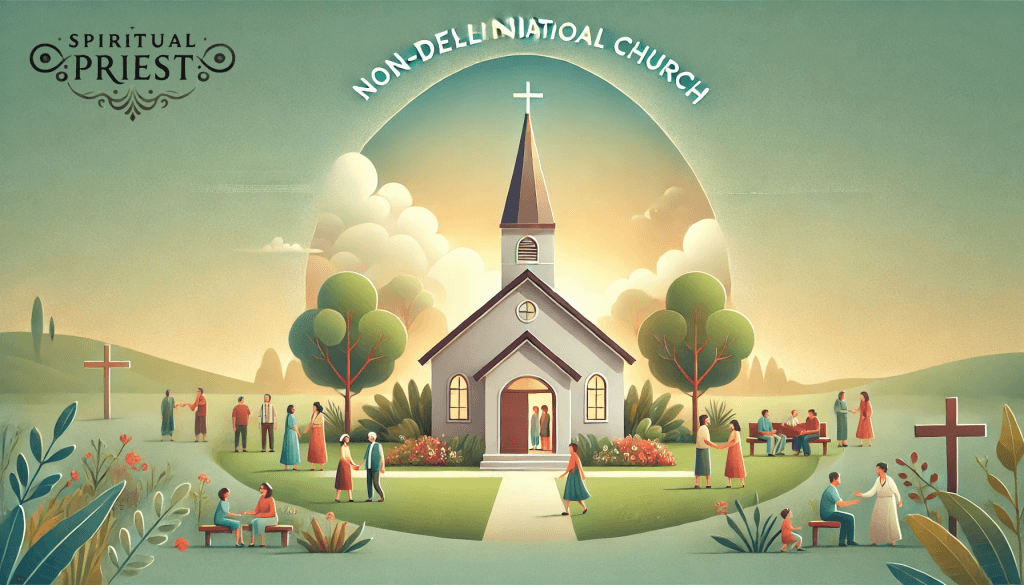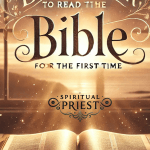What Is a Non-Denominational Church: You’re not the only one who wants to know what “non-denominational church” really means, whether you’re a new Christian or an old one. It might be hard to figure out what different churches mean when they say they are interdenominational, non-denominational, or “denominational.”
This talk will be about what a non-denominational church is, what its beliefs are, and where you can find one in Austin, Texas. A lot of people who are looking for a church near me or nearby Christian churches like non-denominational churches because they are welcoming and friendly.
Read Also:- Best Order to Read The Bible for The First Time
What is Non denominational Church meaning ?
Not Restricted to a Denomination
Why Non-Denominational Churches are Gaining in Popularity?

Several things make it possible for non-denominational groups to choose to use the word “non-denominational.” For example, a non-denominational church may clearly follow the beliefs and actions of a certain denomination, but it will be different from that denomination by making its own rules and not strictly following the structure of the larger organization. [What Is a Non-Denominational Church]
By running their own businesses, they can make the church system less formal and avoid the religious (and often political) ties of a specific denomination. Without official oversight from the leadership of a group, the church is free to change and adapt to meet the needs and preferences of its community and congregation. They can also stop doing things that they think are out-of-date or unnecessary.
There are some non-denominational churches that are like mainline denominations, but they can’t fully join with the group because they disagree on one or more important issues. Others see “non-denominational” as a way to attract people who don’t know much about religion or don’t like organized religion.
Read Also:- How Many Pages Are There in the Bible? A Compressive Guide 2025
Non-denominational churches are often a good option for younger people who find it hard to deal with the strict dogma and rituals of mainline denominations and for people who belong to mainline churches but don’t agree with the church’s position on certain issues.
What is a Non-denominational Church?

A non-denominational church is a Christian group that works on its own and is not officially connected with any of the major Christian denominations, like Baptist, Catholic, Presbyterian, Lutheran, or Methodist churches.
When it comes to many parts of church life, non-denominational churches make their own decisions. This is different from denominational churches, which are part of bigger groups with their own identities, beliefs, and customs.
How many churches that don’t belong to any one group are there?

Since they started to form in the second half of the 20th century, non-denominational churches have grown in many countries. It’s interesting that they came from the United States. These churches were started because people wanted to be free from the political and religious ties that long-standing traditional churches had built up. [What Is a Non-Denominational Church]
Read Also:- Unlocking the Power of the Word of Knowledge: A Comprehensive Guide for Christian Believers
They also wanted to get back to the core beliefs of Christianity. A non-denominational church tries to follow the ways other churches do things instead of focusing on what religious groups have made.
Understanding What Non-Denominational Churches Believe
Are you interested in what non-denominational Christian groups believe? Most churches believe that the Bible is the most important book that guides lessons, worship, and church life. However, there may be small differences between churches.
In comparison to denominational churches, they don’t follow the rules set by bigger groups. Instead, non-denominational churches stress that the Bible is the most important part of their teaching and use it to guide their views.
Some denominational churches use readings of the Bible to come up with complicated theologies, but non-denominational churches think that these kinds of extrapolations can make God’s word less simple. They decide on a plan that focuses on the community, with leaders from the congregation, who are usually a group of elders. They see a church more as a group of Christians getting together than as a set of rules.
Non-denominational churches, like other Christian groups, are based on the same core Christian beliefs. These include the idea that Jesus Christ is the Son of God, that He died and rose from the dead, and that He will return again. In addition, they support the literal truth of the Bible without adding new beliefs. A relationship with God is more important than rules or customs in this way of life that is based on the Bible.
The beliefs of non-denominational churches are different from those of other denominations because they are similar to those of non-episcopal Protestant churches in areas such as the priesthood, communion, sacraments like marriage and baptism, and burial practices. They put a high value on basic biblical principles and often make their views more straightforward in these areas.
Read Also:- Top 10 Bible Translations to Avoid For New Believers in 2025
At the heart of non-denominational churches are a deep commitment to the Bible and the building of a loving, close-knit community of Christians. If you want to find a church in your area that is based on bible truth and has a friendly vibe, that next step on your spiritual path might be to look into a non-denominational church. [What Is a Non-Denominational Church]
Non-Denominational Churches and Gen Z
A lot of non-denominational churches have grown to have large groups across the country and even around the world. Some examples are Elevation Church, Lakewood Church, MannaHouse, and Jesus Culture. There are, however, hundreds more non-denominational churches in the Christian world than just these few well-known ones. You can find one on almost every street. These churches range in size from small, family-run groups in the community to big, well-known groups.
A lot of non-denominational churches are in Texas. Some examples are Bethel, Hope Fellowship, Gateway Church, Cornerstone Church, Life Church, and The Vineyard Church, which has campuses all over the state.
Before you join a non-denominational church, there are some good things to know and things to think about. These churches are unique in that they can meet the needs of their community without being limited by a central group. This makes them flexible and able to change.
Members of the church can have a say in where it goes and how it grows. Non-denominational congregations are also appealing to people who come from mainline churches and want a simpler, more personal way to pray.
But independent non-denominational churches might not have the means that bigger groups do, which could make it harder for them to grow. It can be hard to settle disagreements within the congregation if there isn’t a hierarchical system in place to handle them. However, trustworthy non-denominational churches deal with these issues by building on biblical teachings and supporting open communication.
Gen Z and Churches That Don’t Follow Any Religion
Gen Z likes non-denominational churches because they are open to new ideas and like to be themselves. These churches use social media to connect with their members, use modern ways to pray, and choose leaders who can connect with younger people on a personal level. Millennials are drawn to churches that put connections over institutional standards because it makes the atmosphere warm and welcoming. [What Is a Non-Denominational Church]
What Makes a Church That Doesn’t Follow Any Religion a Good Choice?
Regardless of their origins, non-denominational churches bring together a varied range of individuals through a common love for Jesus. The community drives worship experiences, fostering a more welcoming environment. Think about going to a nearby non-denominational church if you’re looking for a location that celebrates your uniqueness.
The Church of Dreamers
Established by Pastors Poncho and Lora Lowder, Dreamer’s Church is a multigenerational, multicultural congregation located in Austin, Texas. Dreamer’s Church invites newcomers looking for a spiritual home and embraces Christian believers from a variety of denominational backgrounds, ethnicities, and countries.
Dreamer’s Church is a non-denominational sanctuary in Austin where you can experience love and community. Get in touch to learn more about this vibrant church and its service hours.
The History of Non-Denominational Churches

The idea of a non-denominational church organization goes back to the Stone-Campbell-Scott Movement in the early 1800s. This movement was part of the Restoration Movement, which sought to return the church to the way it was in the New Testament.
Calls to go back to a basic New Testament Christianity, which includes only calling people who follow Christ “Christians,” were started by Barton Warren Stone, a Presbyterian preacher in Kentucky, and others. Stone thought that all Protestant churches were separate from the original church because they were based on false creeds and customs. Besides the doctrine of the Trinity, he also had a hard time with what he saw as the “Calvinist” ideas of election, punishment, and determinism. [What Is a Non-Denominational Church]
In Pennsylvania, Thomas and Alexander Campbell, a father and son team, were also working to get rid of ethnic names. The called people who follow Christ “Disciples” and spread the idea that there is “one Church of Christ” in the world. Campbell, father and son, wanted to bring the church together by getting rid of fake creeds and depending only on the Bible. People who went to the churches that the Campbells started were often called “Campbellites.” “Speak where the Bible speaks and be silent where the Bible is silent” was the Campbell creed.
During this time, Walter Scott went from Scotland to New York. He was inspired to do so by George Forrester, a member of the Scottish independent movement to rebuild the New Testament Church. After going to the Campbell churches, Scott became a missionary for them. Over the next three years, more than 3,000 people joined the campaign, which was then called the Stone-Campbell-Scott effort.
All of these efforts came together at the beginning of the 1800s to make the Protestant-free Stone-Campbell-Scott churches. The Stone-Campbell-Scott churches were separate and ran themselves. They were mostly interested in the New Testament, immersion baptism, ecumenism, and communion.
Non denominational beliefs
- Non-denominational views are not tied to any one religion and can be very different between faiths:
- Book of Mormon
- Bible-based churches get most of their power and direction from the Bible. According to them, the Bible controls every part of the church.
- Each person has a link to God.
- For non-denominational churches, having a personal bond with God is more important than following rules or ceremonies.
- Worship today
- Multimedia presentations, singing, and theater are often a part of modern worship at non-denominational churches.
- Being flexible
- There is more adaptability and flexibility in the way that non-denominational groups do religious activities.
- Governing themselves
- Elders often keep an eye on the structure, organization, and traditions of non-denominational churches, which are self-governing groups.
- There are beliefs that are common to many faiths, such as Unitarian Universalism, Islam, Judaism, Hinduism, Buddhism, Wicca, Jainism, the Bahá’í Faith, Zoroastrianism, and Christianity.
- It is important to read the theological statements of each non-denominational church you are thinking about, though, because their views can be different. [What Is a Non-Denominational Church]
My Experience
Going to a non-denominational church can be a nice change of pace and bring people together. When I first went to Dreamer’s Church in Austin, Texas, I wasn’t sure what to expect. Instantly I walked in, I was greeted with warmth and real kindness. The service was encouraging, with moving music and a Bible-based message that felt personal and real. There weren’t any strict rules, just a friendly setting where people from all walks of life could worship and get to know each other. It was like coming home to a spiritual place where faith and community were more important than labels or customs.
Conclusion
Some churches focus on personal faith, biblical lessons, and community-driven practices, while others take a more traditional approach to Christian worship. Many believers like them because they are flexible, focus on personal relationships with God, and aren’t officially connected to bigger religious groups. Although they are still growing, these churches meet the spiritual needs of people who want a warm, friendly, and active faith experience. Have you ever thought *What Is a Non-Denominational Church*? It’s a place where people can grow in their faith without being limited by their religious affiliation. Consider going to one to experience a new and important way to worship as a Christian. What Is a Non-Denominational Church]
Q.1 Is Catholic non-denominational ?
Ans:- There is a certain Christian church group that includes denominational churches like the Catholic Church, the Methodist Church, the Evangelical Church, the Church of Christ, and the Presbyterian Church.
Q.2 Can Catholic marry non-denominational ?
Ans:- If you meet these requirements, the Church will let you marry a non-Catholic.
Q.3 Who founded the non-denominational church ?
Ans:- Barron Stone and Thomas Campbell. Early in the 1800s



